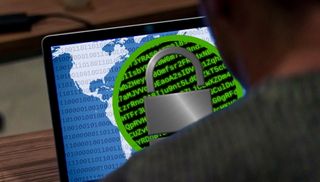How VPNs can help to maximize business continuity
VPNs are so easy to use these days

Every business needs to face the fact that we live in uncertain times, and never more so since the Covid-19 pandemic threatened the fate of so many companies around the world.
A savvy business therefore needs to deal with these issues prior to facing a shutdown. In other words, we should plan for the unexpected.
One emerging piece of software that can help in this cause is a VPN, or virtual private network. In terms of business security, flexibility and continuity, business VPNs are becoming an essential bit of kit.
- Increase your internet security by grabbing the best antivirus
- How to work from home: the ideal mouse, monitor, keyboard and router
- Be sure that your identity is safe with a private no logs VPN
Business Continuity Plans
A business should have a ‘Business Continuity Plan,’ which outlines how a business can deal with a disaster and ultimately survive such a situation. A portion of the Business Continuity Plan is the ‘Disaster Recovery Plan,’ that gives more specifics on how your business will continue to operate and recover under a disaster situation.
Having such plans in place, with specifics communicated to employees before the disaster occurs can make your business a lot more resilient.
Such Business Continuity Plans have a number of aspects. These include maintaining contact with the business’ customers, along with plans to maintain a revenue stream during trying times. There should also be plans on how to maintain the integrity of business data, and a process for the recovery.

Why a VPN should feature
A cornerstone of a Business Continuity Plan is a corporate VPN. This is a VPN that is run by the business, that allows workers to be able to connect to the corporate resources, data and software.
A VPN also allows workers to connect to their employer in a safe and secure manner, whether at company headquarters or over public Wi-Fi. With a Corporate VPN, the stream of traffic data gets encrypted to standards that are high enough to meet the level of Top Secret government communications (256-bit). Therefore, emails and documents are safe from being intercepted by the prying eyes of your ISP and competing businesses, as neither will be able to see the online activities of the employees.
Finally, the use of the internet is safer with a VPN, as the IP address goes back to the server and not the individual employee, making it far more difficult to be hacked or a victim of a ransomware attack.
In a disaster situation, most businesses need to face that their workforce would not be able to physically come to the place of business, and rather would need to work remotely. While many businesses are set up for a remote access VPN to these corporate resources, having the majority or even the entire workforce remote simultaneously can stress a system.
However, with comprehensive planning, the time to step up the system to meet peak demand can be done in advance, and not waiting till the actual disaster to figure out that the corporate VPN will not be able to perform.
Effective communication
The coronavirus pandemic has taught us some lessons in terms of remote workers. For example, the inability to conduct face-to-face meetings has pushed these gatherings to be held remotely.
This is often done via mobile devices, which may not be fully protected as they are personal (rather than company) devices. This also makes it a challenge for analysis of traffic data as it gets spread across multiple devices to determine VPN needs.
'Split tunnelling'is something else to consider and a feature pf the best VPN providers. Typically, with a corporate VPN all of the data goes through the VPN. However there are times where it can be advantageous to access the internet locally, such as to see a local newspaper site. With split tunnelling, the user can choose which data goes through the VPN, and which bypasses it, to have full control and an optimum experience.
Are you a pro? Subscribe to our newsletter
Sign up to the TechRadar Pro newsletter to get all the top news, opinion, features and guidance your business needs to succeed!
Jonas P. DeMuro is a freelance reviewer covering wireless networking hardware.

